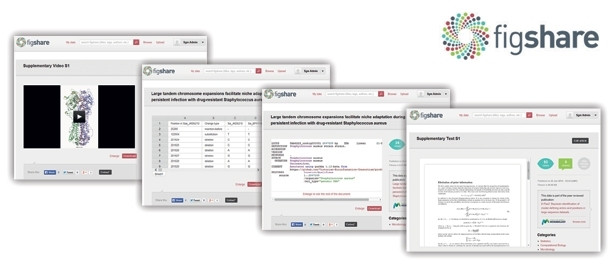Publishing
Issue: Zoonotic diseases
05 November 2015 article

A great start to the #MGeneration
The Society’s new open access journal, Microbial Genomics, launched earlier this year. This article highlights some of the latest papers and gives an update on the journal’s pioneering Open Data policy.
Microbial Genomics (MGen) launched this summer with a selection of innovative published papers. These included an article on chromosome remodelling during a protracted MRSA infection, which Dr William Hanage, an Editor for MGen, summarised as “showing us a trick a drug-resistant pathogen used to make itself at home during a serious infection”. He added that “these are the type of results we need genomic methods to find, to study, and ultimately to combat. Microbial Genomics is going to be the place to read and publish such research”. The journal has since published a number of articles including a paper on the origin and dispersal of Shiga-toxin-producing Escherichia coli O157:H7, using phylogenetic methods to present a comprehensive population structure on this zoonotic pathogen for the first time. More recently, Cornick et al. presented the largest reported sequencing collection of a single Streptococcus pneumoniae serotype to date to show how country-specific selective pressures have driven the evolution and diversification of this important pathogen within Africa. MGen aims to reach a first decision on submitted papers within 4 weeks, with Accepted Papers published as the author version within 3 working days.
Microbial Genomics’ Open Data policy leads the way in microbiological science
MGen provides the Society with its first open data publication, recognising the benefits to be gained from authors sharing their research data. In keeping with the journal’s mission to support the discoverability and accessibility of research data, the Editorial Board – led by Professors Nicholas Thomson and Stephen Bentley, both at the Wellcome Trust Sanger Institute – decided that a mandatory open data policy would be necessary to achieve these goals. The journal’s Open Data policy has been recognised as a leader in the field by the publishers of other microbiology journals. This includes the American Society for Microbiology, who are looking to follow MGen’s lead and have taken guidance from the journal in developing their own policy for the publication of supporting data.
EXAMPLES OF DATA PRESENTED IN MGEN ARTICLES, SUCH AS LARGE DATASETS, SEQUENCES AND VIDEOS, THAT HAVE BEEN PUBLISHED THROUGH OUR DATA PARTNER FIGSHARE.

Many of the journal’s authors have now taken advantage of MGen’s agreement with the online repository figshare, to publish and link their data to the final article. Mark Hahnel, founder of figshare, said of the partnership: “We are delighted that the Society has chosen figshare to offer an enhanced data service to their authors and readers. Society publishers play a key role in the dissemination of academic content and MGen’s Open Data policy puts them at the forefront of one of the most important movements in academia.” The journal also provides seamless linking with a number of other repositories including GenBank, Microreact and GitHub. For more information go to the MGen website.
PARITA PATEL
Product Manager
[email protected]
"THE ABILITY TO GENERATE MICROBIAL GENOMIC DATA AT SCALE HAS NOT ONLY FACILITATED RAPID DEVELOPMENT IN ESTABLISHED FIELDS, BUT HAS GIVEN RISE TO WHOLE NEW BRANCHES OF SCIENCE."
Dr Kathryn Hall, Senior Editor, Microbial Genomics
"OPEN DATA IS WHAT WILL HELP US TO PREVENT THE 21ST CENTURY PANDEMICS…"
Jennifer Gardy, Senior Editor, Microbial Genomics
Microbial Genomics: Standing on the Shoulders of Giants
Introducing ‘Standing on the Shoulders of Giants’, which recognises the influential work of pioneering researchers in the field. The first published articles in this new feature include:

PROFESSOR STANLEY FALKOW
Stanford University, USA
Described by many in the field as the ‘father’ of molecular pathogenesis.

PROFESSOR GORDON DOUGAN
Wellcome Trust Sanger Institute UK on Professor Stanley Falkow
A pioneer of enteric diseases and vaccine usage in developing countries.

DAME JANET THORNTON
Director of EMBL European Bioinformatics Institute, UK
One of the world’s leading researchers in structural bioinformatics.
Go to the MGen website to read the full articles.
|
